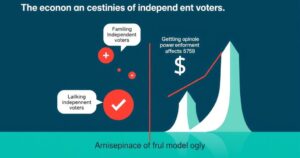Trump 2.0: The Rise of an Anti-Elite Elite in US Politics
Trump’s Political Landscape Shifts Under New Leadership
Donald Trump finds himself surrounded by a fresh wave of politicians and officials, as he’s gearing up for what some are calling ‘Trump 2.0’. While he ran on a promise to dismantle the ‘corrupt elites’ that he claims overwhelm American politics, his second term seems to elevate those loyal to him politically more than anything else. Critics might focus on his wild proposals about Canada or Greenland, or billionaire Elon Musk’s backing of far-right European parties, but missing is this ambitious aim to overhaul the federal government by the new political elite he’s assembling.
A Targeted Attitude Against Liberal Elitism
After Trump’s inauguration, the Republican establishment loyal to him—not Democrats—took control, bolstered by a conservative-dominated Supreme Court featuring three Trump-nominated justices and a right-leaning judicial system crafted during his first term. The Trumpist strategy isn’t merely about toppling elitism but zeroing in on a very specific elite associated with liberal democracies. Political theorists highlight that the rhetoric of leaders like Trump—positioning themselves against elites who allegedly deceive the public—is a tactic that, while populist, undermines the very nature of democracy.
Populism as an Elite Revolt Instead of Mass Rebellion
The polarisation seen since the 1990s has ramped up, culminating in the charged atmosphere of the 2016 campaign, where anti-elite sentiments flew from both Republican and Democratic corners. This was also fuelled by rising tech moguls and their role in political communication, particularly within the Republican camp. The curious phenomenon emerges, as Christopher Lasch pointed out—we’re possibly seeing a revolt among elites rather than the disempowerment of the masses, blending this contemporary populism with a newer elite’s revolt against a previous regime.
Is a New Economic Elite Emerging?
Increased speculation surrounds the birth of a so-called ‘Muskoligarchy’, rallying tech elites around Musk, which may evoke a mixture of admiration and scepticism. The underlying loyalties are essential—these factions seem united primarily by their loyalty to Trump rather than any one coherent ideology. Despite their claims of fighting the ‘deep state’, doubts linger as this conspiracy theory flourishes among Trump pool members, who argue that unelected insiders are the real threat to American democracy.
Reorganising the Federal Government for Loyalty
The new Trump administration’s fervour to dismantle the so-called ‘deep state’ is made clear in various policy proposals and personnel appointments. Fast tracking of individuals who echo Trump’s vision of a purged administration has become apparent, with instances like the touted purges to cleanse elite Democrats from positions of power gaining urgency. Initiatives like Project 2025 aim to reshape the state by demanding loyalty from civil servants, reinforcing Trump’s long-standing agenda to reconfigure how federal governance operates post-Biden.




